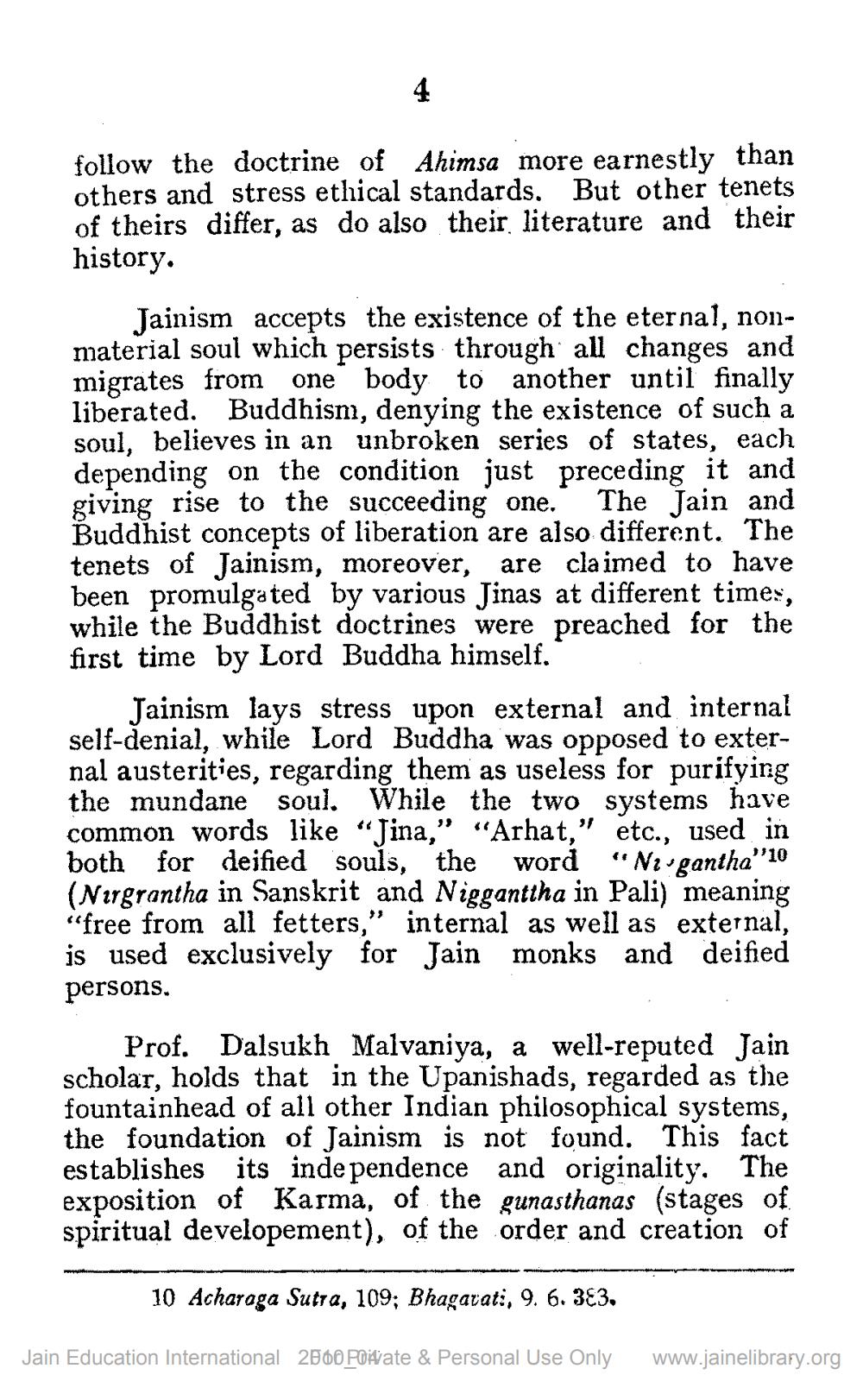Book Title: Fundamental of Jainism Author(s): Prithviraj Jain Publisher: Prithviraj Jain View full book textPage 6
________________ follow the doctrine of Ahimsa more earnestly than others and stress ethical standards. But other tenets of theirs differ, as do also their literature and their history. Jainism accepts the existence of the eternal, nonmaterial soul which persists through all changes and migrates from one body to another until finally liberated. Buddhism, denying the existence of such a soul, believes in an unbroken series of states, each depending on the condition just preceding it and giving rise to the succeeding one. The Jain and Buddhist concepts of liberation are also different. The tenets of Jainism, moreover, are claimed to have been promulgated by various Jinas at different times, while the Buddhist doctrines were preached for the first time by Lord Buddha himself. Jainism lays stress upon external and internal self-denial, while Lord Buddha was opposed to external austerities, regarding them as useless for purifying the mundane soul. While the two systems have common words like "Jina," "Arhat," etc., used in both for deified souls, the word “Nzugantha”10 (Nirgrantha in Sanskrit and Nigganttha in Pali) meaning "free from all fetters," internal as well as external, is used exclusively for Jain monks and deified persons. Prof. Dalsukh Malvaniya, a well-reputed Jain scholar, holds that in the Upanishads, regarded as the fountainhead of all other Indian philosophical systems, the foundation of Jainism is not found. This fact establishes its independence and originality. The exposition of Karma, of the gunasthanas (stages of spiritual developement), of the order and creation of 10 Acharaga Sutra, 109; Bhagarat:, 9. 6.383. Jain Education International 2500 Polrate & Personal Use Only www.jainelibrary.orgPage Navigation
1 ... 4 5 6 7 8 9 10 11 12 13 14 15 16 17 18 19 20
